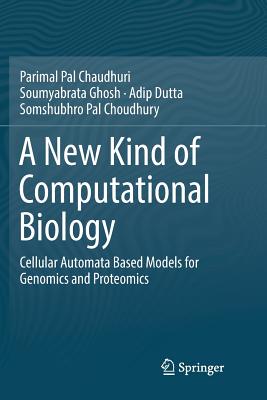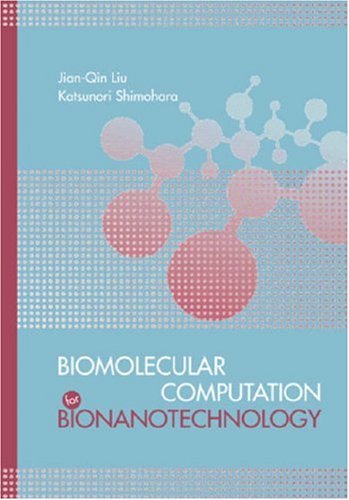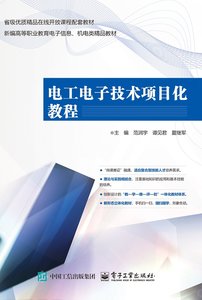A New Kind of Computational Biology: Cellular Automata Based Models for Genomics and Proteomics
暫譯: 新型計算生物學:基於細胞自動機的基因組與蛋白質組模型
Pal Chaudhuri, Parimal, Ghosh, Soumyabrata, Dutta, Adip
- 出版商: Springer
- 出版日期: 2019-01-30
- 售價: $2,470
- 貴賓價: 9.8 折 $2,420
- 語言: 英文
- 頁數: 335
- 裝訂: Quality Paper - also called trade paper
- ISBN: 9811346585
- ISBN-13: 9789811346583
-
相關分類:
生物資訊 Bioinformatics
海外代購書籍(需單獨結帳)
商品描述
This book reflects more than three decades of research on Cellular Automata (CA), and nearly a decade of work on the application of CA to model biological strings, which forms the foundation of 'A New Kind of Computational Biology' pioneered by the start-up, CARLBio. After a brief introduction on Cellular Automata (CA) theory and functional biology, it reports on the modeling of basic biological strings with CA, starting with the basic nucleotides leading to codon and anti-codon CA models. It derives a more involved CA model of DNA, RNA, the entire translation process for amino acid formation and the evolution of protein to its unique structure and function. In subsequent chapters the interaction of Proteins with other bio-molecules is also modeled. The only prior knowledge assumed necessary is an undergraduate knowledge of computer programming and biology.
The book adopts a hands-on, "do-it-yourself" approach to enable readers to apply the method provided to derive the CA rules and comprehend how these are related to the physical 'rules' observed in biology. In a single framework, the authors have presented two branches of science - Computation and Biology. Instead of rigorous molecular dynamics modeling, which the authors describe as a Bottoms-Up model, or relying on the Top-Down new age Artificial Intelligence (AI) and Machine Language (ML) that depends on extensive availability of quality data, this book takes the best from both the Top-Down and Bottoms-up approaches and establishes how the behavior of complex molecules is represented in CA. The CA rules are derived from the basic knowledge of molecular interaction and construction observed in biological world but mapped to a few subset of known results to derive and predict results.This book is useful for students, researchers and industry practitioners who want to explore modeling and simulation of the physical world complex systems from a different perspective. It raises the inevitable the question - 'Are life and the universe nothing but a collection of continuous systems processing information'.
商品描述(中文翻譯)
這本書反映了超過三十年的細胞自動機(Cellular Automata, CA)研究,以及近十年將CA應用於生物序列建模的工作,這為初創公司CARLBio所開創的「新型計算生物學」奠定了基礎。在簡要介紹細胞自動機(CA)理論和功能生物學後,本書報告了使用CA對基本生物序列的建模,從基本的核苷酸開始,進而形成密碼子(codon)和反密碼子(anti-codon)CA模型。它推導出一個更為複雜的CA模型,涵蓋DNA、RNA、氨基酸形成的整個翻譯過程,以及蛋白質的演化及其獨特結構和功能。在隨後的章節中,蛋白質與其他生物分子的相互作用也被建模。唯一假設的先備知識是本科階段的計算機編程和生物學知識。
本書採用實作型的「自己動手」方法,使讀者能夠應用所提供的方法推導CA規則,並理解這些規則如何與生物學中觀察到的物理「規則」相關聯。在單一框架中,作者呈現了計算和生物學這兩個科學分支。與作者所描述的自下而上的分子動力學建模相比,或依賴於依賴大量高質量數據的自上而下的新時代人工智慧(Artificial Intelligence, AI)和機器學習(Machine Language, ML),本書取兩者之長,建立複雜分子的行為如何在CA中表示。CA規則是從生物世界中觀察到的分子相互作用和構造的基本知識推導而來,但映射到少數已知結果的子集上以推導和預測結果。
本書對於希望從不同角度探索物理世界複雜系統建模和模擬的學生、研究人員和業界從業者非常有用。它提出了一個不可避免的問題——「生命和宇宙是否僅僅是處理信息的連續系統的集合」。
作者簡介
Prof Parimal Pal Chaudhuri is the Chief Scientific Officer and Founder of CARLBio. He is a renowned academician and researcher on Cellular Automata for over 30 years. He started his career at IBM back in the early 60's and shifted to academia in the mid 70's where he founded the Computer Science Department of Indian Institute of Technology (IIT) Kharagpur. He was the Head of Department for several years where he pioneered industry-academia research in India and initiated the research in Cellular Automata. He was a Visiting Research Professor at Intel Research Labs, Oregon, USA where his CA research was applied in testing of asynchronous circuits of Intel chips. On his return to India, he joined his alma mater, Bengal Engineering and Science University where he continued his CA research focusing on end applications in partnership with several MNCs. He held several assignments on sabbaticals - as a consultant to Cadence Design Systems and as a Visiting Professor at University of Illinois, Urbana Champaign, USA. He has supervised research of 20 Ph D students, authored 2 books and over 200 research publications. He is a Fellow of National Academy of Engineers (India) and was awarded the Thomas Ward Memorial Gold Medal by Institution of Engineers (India).
Soumyabrata Ghosh is the Founder & Director of Research at CARLBio. He received his PhD degree from IIEST (Indian Institute of Engineering Science and Technology, Shibpur, formerly Bengal Engineering and Science University ). He did his MSc in Biophysics and Bioinformatics from University of Calcutta. He has more than 10 years of industrial experience in the field of data analytics, machine learning, and computational biology. His research interest includes predictive analytics, cognitive computing and AI.
Adip Dutta is a Senior Researcher at CARLBio. For more than thirty-three years, Adip Dutta has worked in diverse domains - developing algorithms, smart devices, sensor networks, power conversion, automation, motion control and instrumentation. Adip was DRDO (Defence Research and Development Organization) Scientist for several years working on high power LASER systems, thermal Imaging and optimal control algorithms. He worked with Raman Research Institute and ISRO (Indian Space Research Organization). Adip was the chief of R&D division in National Instruments and was Senior architect in the advanced technology division of Portalplayer, the designer of the first SOC used in Apple's iPOD. He was the Chief Knowledge Officer of Hamilton Research and was a Research Consultant to nComputing Inc. USA. Since 2012 he is associated with the development of CA applications in biology pioneered by CARLBio. He completed his graduation in Physics in 1982 and B Tech (1985) in Electronics.
Somshubhro (Som) Pal Choudhury is an investor, advisor and director at CARLBio. He is a Partner at Bharat Innovations Fund, a $100M fund focused on building disruptive and innovation led startups out of India. He is a thought leader in Internet of Things (IoT) space, formerly a board and executive council member of India Electronics and Semiconductor Association (IESA), co-founder and co-chair of India's premier IoT event, IoTNext and ecosystem building initiative, IoTForum. Som was previously the Managing Director for Analog Devices India, wholly owned subsidiary of a US based $3.5B semiconductor MNC, Analog Devices. He was based for almost 2 decades in Silicon Valley in various roles: Global Director of Product Mgmt and Marketing of Consumer Business Unit at NETGEAR, first employee of an early M2M/IoT company in the energy management and Smart grid space, American Grid and held several management and engineering roles at Cadence Design Systems. He is a Wharton-UPenn MBA, and engineering degrees from Indian Institute of Technology (IIT) Kharagpur and North Carolina State University.
作者簡介(中文翻譯)
Parimal Pal Chaudhuri 教授是 CARLBio 的首席科學官及創辦人。他是一位著名的學者,專注於細胞自動機的研究已有超過 30 年的歷史。他在 60 年代初期於 IBM 開始他的職業生涯,並於 70 年代中期轉向學術界,創立了印度理工學院(IIT)卡哈格普爾的計算機科學系。他擔任系主任多年,開創了印度的產學研究,並啟動了細胞自動機的研究。他曾擔任美國俄勒岡州英特爾研究實驗室的訪問研究教授,並將他的細胞自動機研究應用於英特爾晶片的非同步電路測試。回到印度後,他加入了他的母校——孟加拉工程與科學大學,繼續進行細胞自動機的研究,專注於與多家跨國公司的應用合作。他在休假期間擔任過多個職位,包括作為 Cadence Design Systems 的顧問,以及美國伊利諾伊大學香檳分校的訪問教授。他指導了 20 名博士生的研究,著有 2 本書籍及超過 200 篇研究出版物。他是印度國家工程院的院士,並獲得了印度工程師協會頒發的托馬斯·沃德紀念金獎。
Soumyabrata Ghosh是 CARLBio 的創辦人及研究總監。他在 IIEST(印度工程科學與技術學院,西孟加拉,前身為孟加拉工程與科學大學)獲得博士學位。他在加爾各答大學獲得生物物理學和生物資訊學的碩士學位。他在數據分析、機器學習和計算生物學領域擁有超過 10 年的產業經驗。他的研究興趣包括預測分析、認知計算和人工智慧。
Adip Dutta是 CARLBio 的高級研究員。超過三十三年來,Adip Dutta 在多個領域工作,包括開發演算法、智能設備、傳感器網絡、電力轉換、自動化、運動控制和儀器儀表。Adip 曾是 DRDO(國防研究與發展組織)的科學家,專注於高功率激光系統、熱成像和最佳控制演算法。他曾與拉曼研究所和 ISRO(印度空間研究組織)合作。Adip 曾擔任國家儀器的研發部門主管,並在 Portalplayer 的先進技術部門擔任高級架構師,該公司設計了 Apple iPOD 使用的第一個 SOC。他是 Hamilton Research 的首席知識官,並擔任 nComputing Inc. 美國的研究顧問。自 2012 年以來,他與 CARLBio 開創的生物學中細胞自動機應用的發展有關。他於 1982 年獲得物理學學士學位,並於 1985 年獲得電子學的 B Tech 學位。
Somshubhro (Som) Pal Choudhury是 CARLBio 的投資者、顧問及董事。他是 Bharat Innovations Fund 的合夥人,該基金專注於從印度建立顛覆性和創新驅動的初創企業,資金達 1 億美元。他是物聯網(IoT)領域的思想領袖,曾擔任印度電子與半導體協會(IESA)的董事會及執行委員會成員,並共同創辦及共同主持印度首屈一指的物聯網活動 IoTNext 和生態系統建設倡議 IoTForum。Som 之前是美國一家市值 35 億美元的半導體跨國公司 Analog Devices India 的董事總經理。他在矽谷工作近 20 年,擔任多個職位,包括 NETGEAR 消費業務單位的全球產品管理與市場總監、早期 M2M/IoT 公司 American Grid 的首位員工,並在 Cadence Design Systems 擔任多個管理和工程職位。他擁有沃頓商學院的 MBA 學位,並在印度理工學院(IIT)卡哈格普爾和北卡羅來納州立大學獲得工程學位。











![公職考試 2026 試題大補帖【抽樣方法與迴歸分析】(107~114年試題)(申論題型)[適用三等/高考、地方特考]-cover](https://cf-assets2.tenlong.com.tw/products/images/000/249/578/medium/CK513401011001.jpg?1764305468)


















